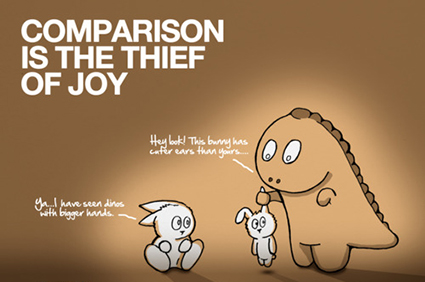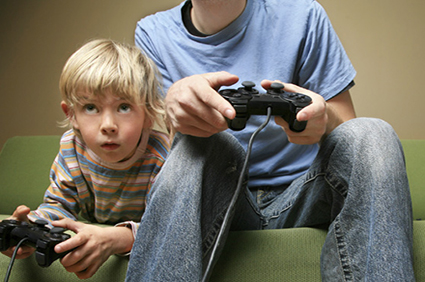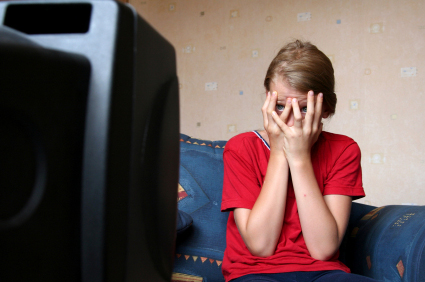NAVIGATE STRAIGHT TO: Links
|
Below are some of the ongoing projects in the Media and Social Development Lab: |
|
Are Social Comparions Automatic?  |
A great deal of research suggests that we make frequent comparisons between ourselves and other people regarding our appearance. When those "others" possess more desirable characteristics than we do (as is most often the case for the people appearing in music videos, magazines, and on TV) these comparisons make us feel worse about ourselves. If this is true, one question is "Why do we continue to make such comparisons?" One answer that we are investigating is that social comparisons are relatively automatic processes, that take place with little conscious thought. As such, they may be particularly hard to avoid making. |
|
What are the Consequences of Video Game Play? Video games are incredibly diverse. Some games allow players to engage in virtual versions of extreme anti-social behaviour, such as car-jacking, reckless driving, assault, and murder. On the other hand, some games allow players to act benevolently to virtual others. In this research, we are exploring the effects of the type of video-game content that is played, as well as how the game is played (cooperatively or competitively), on players' attitudes, emotions, and behaviour.
|
 |
|
What Role do Demand Characteristics Play in Research?
|
When people come to participate in a study in a psychology laboratory, they are naturally curious about the purpose of the study. But knowledge of the purpose of a study can sometimes change participants' natural responses. For this reason, researchers in psychology often do not tell participants the true purpose of a study until after it is over. However, some parts of a study can act as clues (demand characteristics) that allow participants to guess the purpose of the study. In this line of research we are interested in how easily participants can guess the true purpose of psychology studies, and whether or not participants' responses change when they are (versus when they aren't) aware of the true purpose of a study. |
|
What Predicts the Experience of "Fright Reactions" to TV and Movies?
Fright reactions are enduring experiences of fear and anxiety produced in response to scary media (typically horror movies). They are surprisingly common, but vary in their intensity. Some people experience only mild fright that lasts no more than a day or two. Other people may experience fright reactions that last for years (I've been anxious of swimming in the ocean ever since watching the movie Jaws as a child). In this line of research, I am investigating factors such as empathy to determine the sources of this variation in fright reactions. |
 |
|

